Student evaluation
Section outline
-
Overview
This course provides graduate students with the opportunity to grapple with complex ideas and issues related to their practice. The research project will be graded based on the quality of the project and the depth of student reflection, including:
- the relevance and importance of the project to their field,
- the challenge or innovation the project presents to the educational arena,
- the benefits and insights the student has gained in their role as a professional,
- and the challenges and questions brought forward by their project.
-
-
This course has four major assignments:
- A1: Project proposal (due semester 1): Students produce a project proposal that describes their inquiry, articulates their positionality and theoretical lens, includes a preliminary review of relevant literature, outlines methodology and methods, and describes proposed professional application, all in accordance with APA 7th edition guidelines.
- A2: Reflective essay and literature review (first draft due semester 1): All students will produce a reflective paper informed by the scholarly literature that articulates their research process and implications for practice, as well as a literature review.
- A3: Professional application (due semester 2): Acceptable professional and/or scholarly applications may include—but are not limited to— development of K-12 curriculum, creation of open educational resources (OER), design and facilitation of a workshop or symposium, authorship of a children’s book or educational toolkit, autoethnographic or narrative inquiry. Other creative, practice-based, or community-oriented outputs are also welcome with supervisory approval.
- A4: Knowledge mobilization (due semester 2): Students will share their work in a summative presentation to their peers, instructors, and invited guests.
-
Students have a responsibility to transparently state and highlight where and how they have used GenAI in work they have submitted. Instructors also have a responsibility to state clearly and explicitly where they are using GenAI in the development and delivery of the course.
Read the attached letter regarding appropriate and inappropriate use of GenAI:
-
-
-
Students' written work and presentation are evaluated by two faculty members: the supervisor and second reader or co-supervisor.
- Supervisor: A faculty member in EDSW who has been approved to serve as Full/Associate Graduate Supervisor; holds a terminal qualification or equivalent in their discipline; a substantial record of peer-reviewed and disseminated research, scholarly activity and/or production of creative works; active in their profession or discipline; and a successful record of securing research funding.
- Second Reader: The second reader may or may not be a co-supervision role, as such their level of engagement with the project will vary. If in a co-supervisory role, they will be involved right from the start of the project; if in a second reader role, they will only provide feedback on the final project and presentation. The second reader for an MEd project provides an additional scholarly perspective by reviewing the final project for clarity, coherence, academic rigor, and alignment with program expectations. Their role is to offer constructive feedback, ensure quality, and contribute to the final assessment in collaboration with the supervisor.
-
The final marking rubric for EDUC 5180 Research Project outlines assessment criteria aligned with the course learning outcomes and provides detailed performance descriptors for grading.
-
